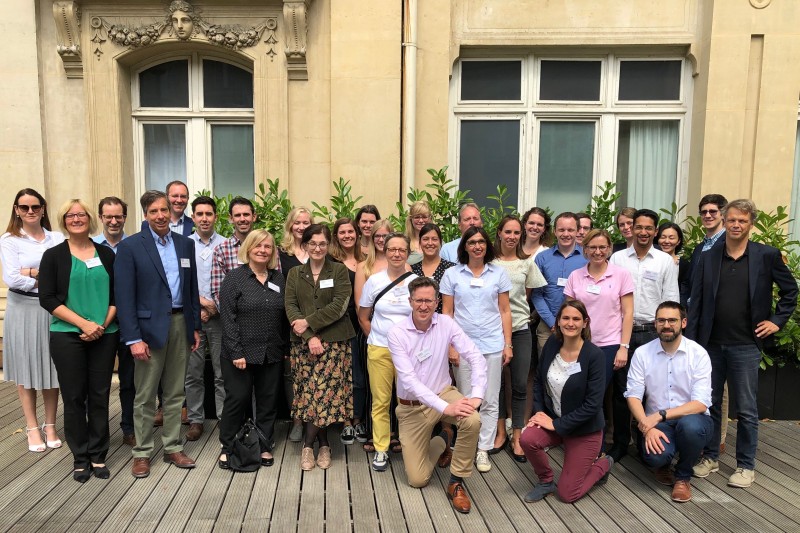
Jul 20, 2019
Written by Dr Gabriele Wagner, Project Manager, SVDs@target
The annual General Assembly Meetings are traditionally rotating between the partners within the consortium. For this year’s GA meeting we chose the wonderful city of Paris, where Prof. Anne Joutel at INSERM is based. At the first evening we had a very nice get-together with the SVDs@target participants, who already arrived in Paris and researchers of the Leducq Foundation network, who also work on cerebral small vessel diseases.
On the next day we started in the morning with our working program and every Work Package had the chance to present their current work, results and status. The preclinical partners presented their results of the last months followed by lively discussions about the new gained insights and usually finished with a long list of new experiments, that were elaborated during the discussions. The clinical partners presented the current status of the clinical studies and trial and could present first preliminary data from analyses already performed.
One highlight was definitely the good and motivating news, that recruitment of INVESTIGATE-SVDs is about to be completed within the next weeks. After this fully packed day we let it end in a very cosy Parisienne restaurant, where the participants exchanged also beyond science – as the consortium maintains close collaborations, the participants really got to know each other over the last four years.
The second day started with a very helpful discussion regarding our clinical trial TREAT-SVDs and around noon, Prof Dichgans, Coordinator of SVDs@target thanked again all consortium members for the great work and with an additional thank to Anne Joutel’s hospitality he closed the annual meeting. After a relaxing lunch at the terrace of our meeting venue, the participants made their way back home.
About SVDs@target
Stroke and dementia rank among the most pressing health issues in Europe. Cerebral small vessel diseases (SVDs) have emerged as a central link between these two major co-morbidities. SVDs account for more than 30% of strokes and at least 40% of dementia cases. They encounter multiple distinct diseases that can be separated based on their underlying genetic defects, risk factors, and clinical presentations. Despite this profound impact on human health, there are no treatments with proven efficacy against SVDs.
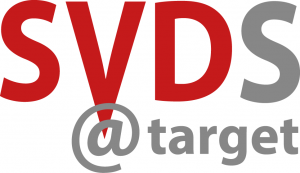
The new network “Small vessel diseases in a mechanistic perspective: Targets for Intervention in Stroke and Dementia(SVDs@target)” is funded through the European Union’s Horizon 2020 research and innovation programme and brings together top scientists with a wide range of complementary expertise.
The project also includes 3 studies with stroke patients. They are:
ZOOM@SVDs, a high-resolution imaging study to look at vascular function and brain damage
INVESTIGATE-SVDs, an imaging study to assess the blood/brain barrier and vascular function,
TREAT-SVDs, testing the effects of different blood pressure lowering agents on vascular function in patients with distinct SVDs
With the better understanding of small vessel diseases SVDs@target will develop novel therapeutic treatments and finally contribute to the prevention of stroke and dementia.
SVDs@target has received funding from the European Union’s Horizon 2020 research and innovation programme under grant agreement No 666881.

Jul 19, 2019
“In Hungary even nowadays people are ashamed of this disease (stroke), they do not talk about it, they live their life withdrawn, stopping all social activities, and therefore the beneficial rehabilitation opportunities often cannot be brought to their attention. In many cases, the society and the relatives give up on the stroke survivors” says András Folyovich, MD PhD – Board member of the National Stroke Prevention and Rehabilitation League – Hungary.
SAFE: What is one issue related to the life after stroke in your country that you think needs special attention?
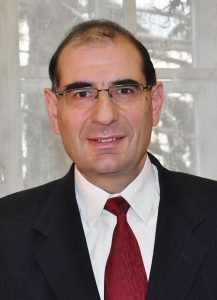
András Folyovich, MD PhD – Board member of the National Stroke Prevention and Rehabilitation League
AF: Among the serious consequences of stroke, social reintegration is one of the most important issues, which needs special attention. Stroke survivors recovering with residual symptoms experience that their roles in the society are significantly affected: they can no longer fulfill their former work, and everyday tasks. They may even be forced to resign and thus the economic situation of the families becomes insecure. Significant number of stroke-patients need constant care, and the families face big financial burden. Moreover, family members often must quit their jobs too due to patient care. This emotional and financial burden is very difficult to live with for the affected families.
SAFE: What would be the solution, i.e. what is your organisation’s position regarding this issue?
AF: In our opinion, civil organisations can help a lot in the successful reintegration into the community.
The majority of stroke survivors are discharged into the community. However, after the hospital discharge stroke-survivors and their caregivers are not fully aware of the available further rehabilitation options (physiotherapy, speech and language therapy, stroke support organisations etc.). The situation is worse for those, who are living in the countryside, as there are limited rehabilitation opportunities.
Stroke support organisations can help to give the useful information about the existing support groups, rehabilitation facilities and various equipment. Providing orthotics and transfer- and mobility equipment may assist for patients to be able to leave their homes and to start to fulfill the roles, they used to do before.
Support groups can also be helpful to give a platform, where stroke-survivors can meet and share their experiences and support each other.
In summary, our vision is a world, in which the number of stroke cases decreases significantly and all stroke patients receive a personalized, short and long-term support and care, with successful social reintegration.
SAFE: Please tell us more about your organisation.
AF: Our non-profit civil organisation was founded in 1993 and named ’The National Stroke Prevention and Rehabilitation League’ in 2011. Our mission is the prevention and the rehabilitation of stroke patients through services, personal assistance, information, advocacy and cooperation with health professionals.
Our core activities include:
- organising free health screening events (Stroke screening day at Szent János Hospital)
- editing and issuing healthcare brochures and their distribution (e.g.: physiotherapy exercise booklets to those who live in the countryside)
- providing access to transfer and mobility equipment
- personal assistance and advocacy to stroke-patients and their relatives
- participation in national and local health related events
- recruiting new members
The League’s services and programmes are available for everyone. In order to make our work more effective we also co-operate with other national and foreign organisations and governmental decision-makers (e.g.: Aphasia Club, International, Pető Institute, SZÍV SN Association for heart diseases etc.)
The National Stroke Prevention and Rehabilitation League is currently unable to fulfil their tasks appropriately, due to the lack of funding. The League cannot count on direct financial support either from the government, or from pharmaceutical- and other medical companies.
The reason for this is that traditionally the Hungarian Stroke Association (the medical-professional company) organises the stroke-days and the public awareness events, which means that the financial support arrives there.
The solution may be the revaluation of the National Stroke Prevention and Rehabilitation League and the Hungarian Stroke Association. For which, there is a good chance with the current leadership. In close co-operation, it is necessary to redistribute the tasks. The League should deal with the public issues, while the medical-professional company should be responsible for the professional background. It would be beneficial to contact with the neurological departments of Hungary, and to organise the civil organisations around these departments.
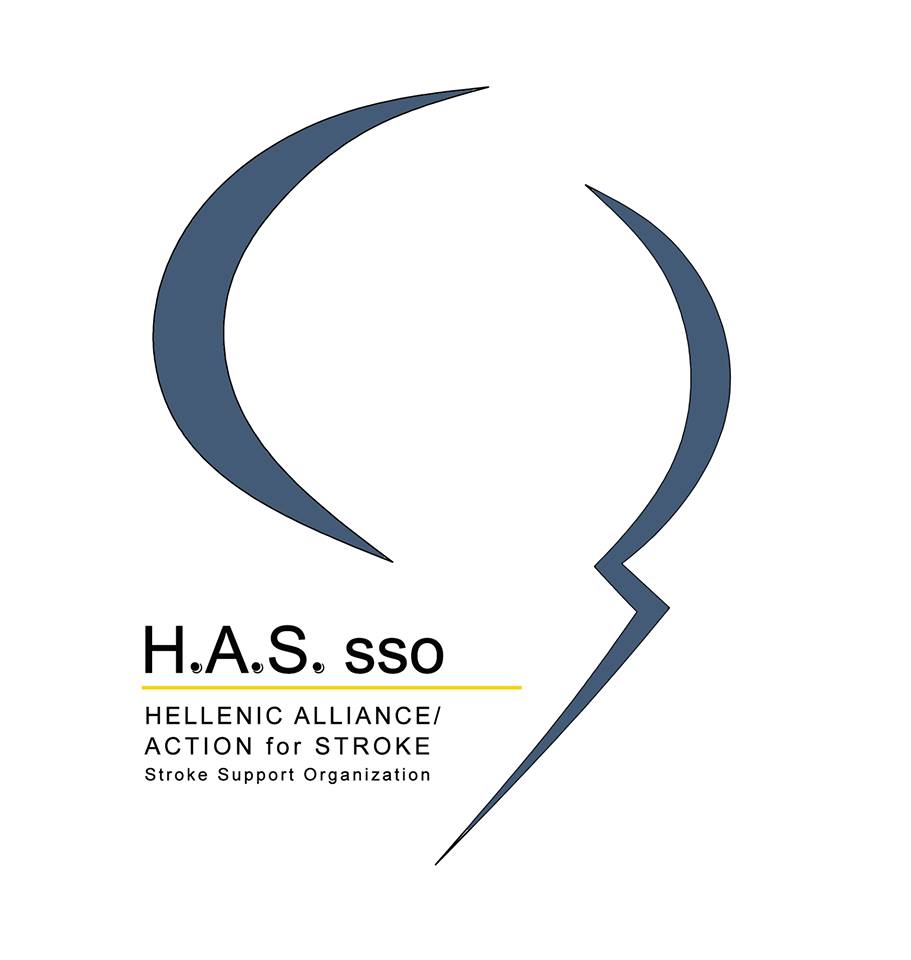
Jul 12, 2019
Continuing our conversations with SAFE member organisations from across Europe, we spoke this week with Pinelopi Vlotinou, Occupational Therapist and Anna Tsiakiri, Psychologist from the Greek stroke support organisation, Hellenic Alliance for Stroke.
SAFE: What is one issue related to the life after stroke in your country that you think needs special attention?
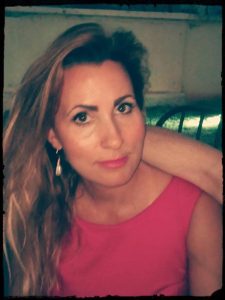
Pinelopi Vlotinou, Occupational Therapist
Engaging and making relevant transitions from clinic to real life in the outside world that are meaningful and thoughtful. Often the missing link of the “rehab puzzle” means announcing to the family prognosis for improvements which may not always be positive and may require environmental adaptations that should be individually geared and best suited for the patient. After a stroke there are “fog” issues not only for the patient but for the family. Trust issues about what works best as well as a unfamiliar new home, social as well as professional environment. It is important that regaining social roles and the return to the previous state of life, taking into account the consequences of stroke. Life goals as well as family needs should be balanced. They require that the patient should establish good relations with someone they trust and implement changes and transitions into daily decisions. Support and framing by a group of specific health professionals who will direct towards the optimum course of action.
SAFE: What would be the solution, i.e. what is your organisation’s position regarding this issue?
Solution: The awareness of the fact that rehabilitation is long term but must be individualized. Therefore the families make cultural competent adaptations that are considered in their options which are provided by health care staff as well as society at large after the hospitalization.
Proposals:
– Every stroke unit should define a “Stroke advisor”. His/her role summarizes at the following:
– connect the patient and his family with “health professional system”
– provide support, information and guidance
– keep a six month “follow up” with the patient
– provide “monitoring” of the patient even at home. Adaptations, ergonomic and ecological suggestions, modifications even to the working environment of the patient can be an additional action to help the individual
– provide resources about Stroke Support Organizations and about local available services
– provide access to patient and family to informational leaflets such as Angels Initiative.
– All neurological clinics/stroke units should establish a Common Protocol about patient management
SAFE: Please tell us more about your organisation.
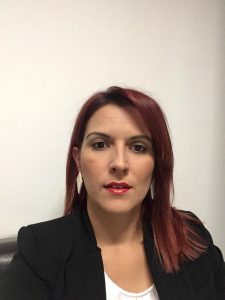
Anna Tsiakiri, Psychologist
Hellenic Alliance for Stroke consists of research and academic organizations of health care providers such as the Greek Neurological Society and the Hellenic Society of Cerebrovascular diseases, institutions, health professionals, voluntary support structures, caregivers and patients. The aim is to make a concerted effort both to inform and educate the public about prevention, early diagnosis and treatment of a stroke and to the health policy makers in order to achieve improvement of health services for the treatment, care and rehabilitation of the patient with stroke at the national level. Main goals:
– Communication and cooperation between members, coming from the scientific field and members, coming from the field of stroke survivors, in order to update and exchange views, knowledge and experience which we believe is the best possible ways to treat, restore and help improve or maintain quality of life not only for the stroke survivor but the family at large.
– The support and promotion of scientific research on issues related to strokes, aiming at better prevention, rehabilitation and reduction of consequences and social costs.
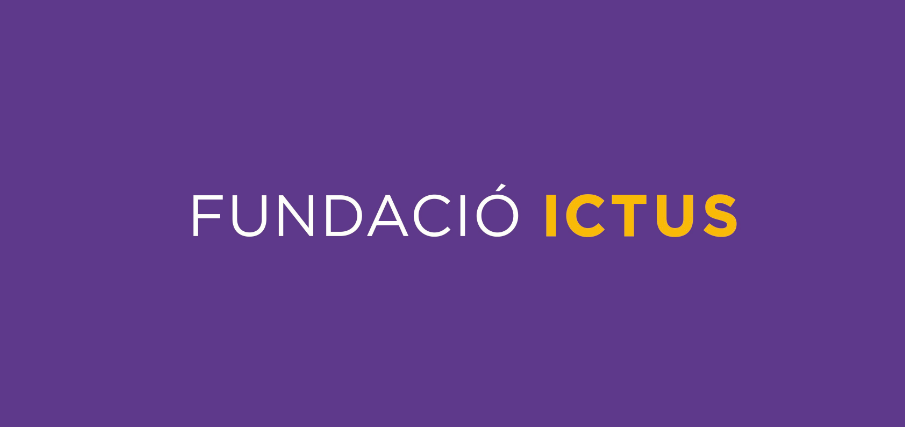
Jul 5, 2019
“The life after stroke is the poorest point of the care process, especially in the chronic phase” says Esther Duarte, member of the board of Fundació Ictus, and rehabilitation doctor at IMIM Institut Hospital del Mar d’Investigacions Mèdiques in Catalonia, Spain.
SAFE: What is one issue related to the life after stroke in your country or region that you think needs special attention?
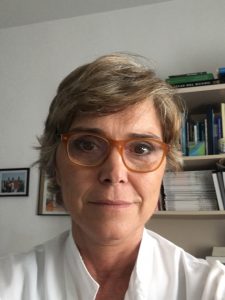
Esther Duarte
ED: In Catalonia, stroke patient associations have few members, therefore they have little power in society and official institutions, as well. In consequence, more public resources are always allocated to young patients with other illnesses, such as cancer and ischemic cardiovascular pathology. Moreover, these associations are only useful for a small percentage of patients. One of the aspects that are not taken into account is labor protection. Few patients return to work because there are no policies to facilitate it. Furthermore, other aspects with bad attention are those related to sexuality or driving, for example. On the other hand, there are few research groups focused on life after stroke and how improve patient-centered outcomes. In conclusion, access to rehabilitation services is not guaranteed in all cases and the needs of patients and caregivers are not always met.
SAFE: What would be the solution, i.e. what is your organization’s position regarding this issue?
ED: The main goal of Fundació Ictus is to improve the quality of life of stroke survivors and their caregivers. We collaborate with patient associations to meet their needs and help them in finding resources for their activities. We also help stroke survivors with specific training for caregivers and volunteers. That’s an important point, because there is not any specific course focused on stroke addressed to any professional, except the hospital nursery course that we have organized for 11 years. We also encourage patient-centered research, otherwise there is no way to advance in giving a better care to stroke survivors. Moreover, we offer advice in different dimensions: legal, labor, social, driving and sexual. Finally, we are trying to develop new platforms oriented to patients and caregivers that integrate all the information.
SAFE: Please tell us more about your organization.
ED: Fundació Ictus is an entity with a social presence with the mission of publicizing the disease, promoting research on it and supporting people who have suffered a stroke. Our main goals are popularizing the disease and spread how to prevent it, how to avoid it and how to treat it. Furthermore, we support stroke patients, offering support to people with disabilities, with alliances with other entities. In addition, we promote research on the disease in all its stages and from all perspectives.
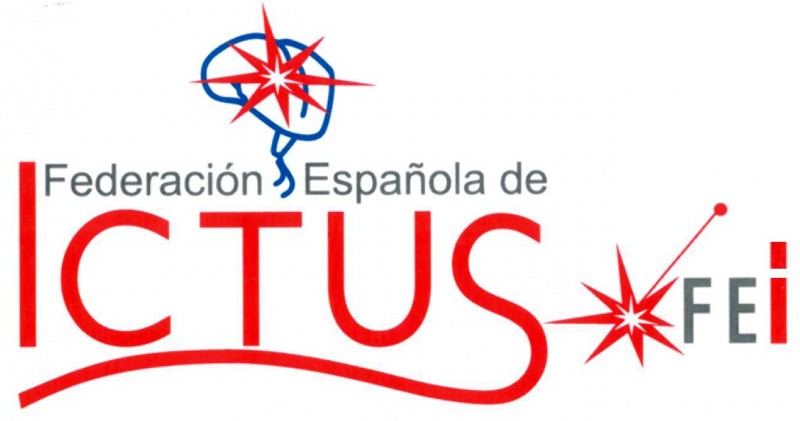
Jul 4, 2019
“Our system promotes health, prevents disease and provides assistance to serious patients in an exemplary manner, trains its professionals properly and generates a high added value in biomedical research, but it still has one remaining issue: to rehabilitate, take care of both the patient and the caregiver and properly reinsert citizens back into society” says Carmen Aleix, the President of the Spanish Federation of Stroke (FEI).
SAFE: What is one issue related to the life after stroke in your country that you think needs special attention?

Carmen Aleix
CA: Rehabilitation in patients with stroke occupies a very irrelevant role in most health decision-making forums throughout Spain, including Catalonia.
We know what our patients think about how the service is provided “beyond the acute phase” They notice limitations regarding care access related to age and perceive that there are no homogeneous referral criteria when accessing to certain social benefits. They also sense lack of information and greater difficulties regarding access to attention when there is cognitive damage associated with severe behavioral disorders. Patients also report important differences in the quality of the benefit depending on the center to which the patient is referred. Rehabilitation should be the main actor and not the secondary or even the absent one, as has been up to now in any plan or strategy on stroke or any other disease that produces disability. Patients demand to live with dignity.
SAFE: What would be the solution, i.e. what is your organisation’s position regarding this issue?
CA: The Spanish Stroke Federation defends the need to carry out in-depth reforms of the system to ensure its sustainability. Encourage patient self-care, health promotion, adjustment of resources to needs and continuity in care.
Our current health model needs to adapt to the new social reality marked by population aging which has become chronic, and the continuous development of technological services. For this, it considers that the person must be placed in the center of our National Health System (SNS), in order to achieve that the needs of the patient to be the ones that vertebrate all the infrastructures and sanitary and sociosanitary services, and demanding a much more active participation in the design and execution of the services that are provided, which is already happening in the most advanced countries in terms of health. Ideally, we should be able to count on a NATIONAL NETWORK OF CONTINUED CARE and to know clearly how the rehabilitation expense is managed in the Social Security and why now is there so much deficiency, so few sessions and so terrible attention in the rehabilitation of stroke patients.
SAFE: Please tell us more about your organisation.
CA: The Spanish Federation of Stroke (FEI) is a non-profit organization at the national level, independent of the administrations, of volunteering, which was founded in 2006. The lack of interest and the scarce sensitization of the health administrations towards stroke was a sufficient reason for the constitution of the federation. The mission of the FEI is to promote information and education on stroke, prevention and adequate and equitable treatment throughout the national territory. Its values are Participation, Commitment, Responsibility, Social Change.
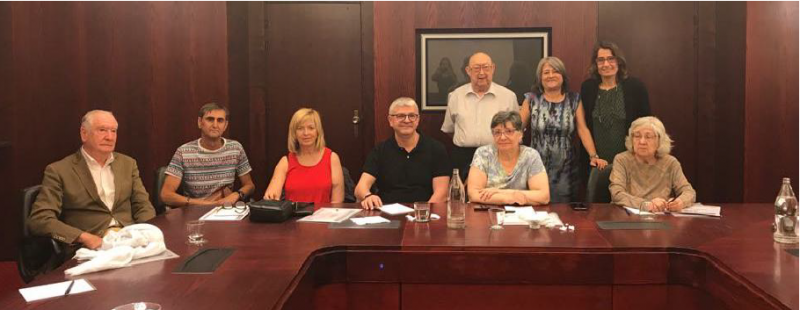
2018 Assembly of the Federation with its associations
Commitment for 2019
1. The FEI is participating in the prevention campaign #GeneraciónInvictus.
2. It is also conducting online surveys to participate patients and caregivers.
3. We have signed a collaboration agreement with the Spanish Society of General and Family Physicians, through which an epidemiological study on the knowledge of stroke in primary care will be carried out jointly, as well as the organization of other workshops and joint activities.
A picture is worth a thousand words, to know our activities we leave our WEBs and Social Networks.
https://ictusfederacion.es/
https://www.facebook.com/ictusfederacion/
https://twitter.com/ictusfederacion
http://diamundialdelictus.org/unictusunahistoria.com/
.
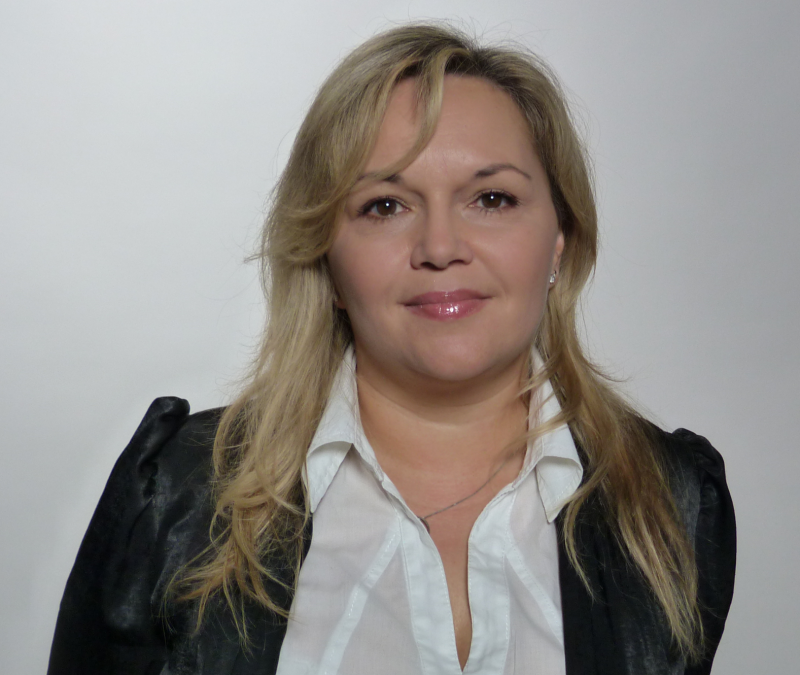
Jun 28, 2019
“Due to deficiency of post-stroke services, stroke survivors leave for psychiatric hospitals or institutions for mentally handicapped people. The support or assistance provided is very low, and there is a complete exhaustion and often the disintegration of these families. At present there are very limited possibilities of specialized and comprehensive rehabilitation in the Czech Republic. Cerebrum responds to this situation and seeks to create a system of aftercare in the scope and volume as allowed by current grants and funds” says Jana Dobrkovská, the CEO of CEREBRUM – Sdružení osob se získaným poškozením mozku a jejich rodin, Czech organisation that is member of SAFE.
SAFE: What is one issue related to the life after stroke in your country that you think needs special attention?
JD: In the Czech Republic we have an excellent system of acute care for stroke. Our stroke centers are high-end facilities that provide the best acute stroke assistance. However Czech health insurance system is limited by volume of support for people after stroke in non acute phase. When the paid physical treatment ends, the survivors no longer continue in any rehabilitation cover by insurance action, although their physical condition would allow them to do so. Also our current system of long-term care for this target group of people is a disjointed with lack of continuity and interconnection of services for the patient after acquired brain injury. Due to deficiency of services, these people leave for psychiatric hospitals or institutions for mentally handicapped people. However, these types of devices are neither identified nor able to provide adequate assistance. If the family decides to take care of themselves, the support or assistance provided is very low, and there is a complete exhaustion and often the disintegration of these families.
SAFE: What would be the solution, i.e. what is your organisation’s position regarding this issue?
JD: We currently help clients who need help from psychologist, speech therapist, physiotherapist. The arrangement of assistance is non-acute care in the form of individual and group therapies. We provide advice in this area and map services that are intended for people after this injury. We also perform our own therapeutic activities and occupation therapy in the home environment. Our team is a psychologist, an occupational therapist, a speech therapist. Our clients are people after a stroke (stroke), injuries (accidents, sports falls and the like) or with consequences after treatment of malignant diseases. We also try to provide help and advice to the clinic’s family, carers and relatives This year we launched a project in selected hospitals in Prague, where, we provide support for families of patients who leave for home care. Our coordinator provides advice and support in everything that home returns often represents; where to buy compensation aids, how to ergonomically adjust housing, where to go for help in the social sphere and more. Another priority of the project is relief and mental support for carers.The aftercare segment has been waiting for the adoption of the Rehabilitation Act for many years to unify post-stroke aftercare procedures. Our activity is also to draw attention to this situation and to influence the general and professional public and raise the awareness o about the wide range of consequences of brain injury and the possibilities of rehabilitation.
SAFE: Please tell us more about your organisation.
 JD: We currently help clients who need help from psychologist, speech therapist, physiotherapist. The arrangement of assistance is non-acute care in the form of individual and group therapies. The main objective is to raise the awareness of the Czech public about the wide range of consequences of brain injury and the possibilities of rehabilitation. We provide advice in this area and map services that are intended for people after this injury. We also perform our own therapeutic activities and ergotherapy in the home environment. Our team is a psychologist, an occupational therapist, a speech therapist, physiotherapist. Our clients are people after a stroke (stroke), injuries (accidents, sports falls and the like) or with consequences after treatment of malignant diseases. We also try to provide help and advice to the clinic’s family, carers and relatives.
JD: We currently help clients who need help from psychologist, speech therapist, physiotherapist. The arrangement of assistance is non-acute care in the form of individual and group therapies. The main objective is to raise the awareness of the Czech public about the wide range of consequences of brain injury and the possibilities of rehabilitation. We provide advice in this area and map services that are intended for people after this injury. We also perform our own therapeutic activities and ergotherapy in the home environment. Our team is a psychologist, an occupational therapist, a speech therapist, physiotherapist. Our clients are people after a stroke (stroke), injuries (accidents, sports falls and the like) or with consequences after treatment of malignant diseases. We also try to provide help and advice to the clinic’s family, carers and relatives.
Size of our organisation is 16 employees,with a 45.000 EUR turnover in 2017.
Brief description of Stroke situation in Czech Republic
Statistic
Hospitalized and deceased for cerebral vascular disease in the Czech Republic (2003-2010)
The number of hospitalizations for cerebral vascular disease from 64,399 cases in 2003 to 57,484 of cases in 2010 decrease by 10.7%
In stroke hospitalizations between 2003 and 2010 there has been a decrease by 7.8% from 44,585 to 41,111 cases (after conversion to 100,000 inhabitants, the trend is also falling Looking at the cerebral vascular disease group in detail, there has been a steep decline in the number of hospitalizations for unspecified patients stroke from 21 037 cases (in 2003) to 10 762 (in 2010), i.e. by half.
In contrast, ischemic attack was diagnosed in 23,871 cases in 2010 compared to 18,055 cases in 2003, ie an increase of about 32%.
Despite the modest increase in other cerebral vascular diseases types, there is an overall gradual decline in all cases. However, the treatment period is lower for stroke (14.1 days in 2003 at 13.6 days in 2010). The average age of hospitalized patients in 2010 ranges from 66.2 to 76.6 years. Compared to 2003, the average age of all cerebral vascular diagnoses was moderate hospitalized in accordance with the increasing demographic aging of the population mortality rates 11.1 deaths per 100 hospitalizations in 2010 compared to 14.5 deaths in 2003 A total of 11,567 people died in the Czech Republic for cerebral vascular disease in 2010, which represents 10.8% of all deaths in a given year. Compared to 2003, this is a decrease of 31%.
Social situation of people who suffer from stroke and other cerebral vascular diseases
The awareness of the importance of health-enhancing physical activity among stroke patients in Czech country is very low. To keep effective social inclusion, the information campaign and knowledge training about such disabilities is crucial. This social inclusion is very poor in Czech Republic. To set up participation in social and public activity for cerebral disease survivors including stroke patients, is very important. This activity needs to be arranged not only for wide population , but it is more important to present the importance of such activities to the survivors themselves.
Cerebrum has experience with clients who show good progress in physiotherapy, but do not have the courage to resume normal social daily activities like they did before stroke. These people also have no calls from public events to join. On the other hand event providers do not offer services with conditions to participate these people in their limitations. And likewise here are very good activities for disabled people in the Czech Republic, which, however, do not often involve people without disabilities.
We want to increase the knowledge of the public in Czech republic and create the link between usual daily living and brain damage survivors. Cerebrum´s employees and association partners are professional therapists, who understand physical limitation of stroke survivors and therefore can act as a mentor for such methodology and trainers education.
Czech health insurance system is also limited by volume of support for people after stroke. When the paid physical treatment ends, the survivors no longer continue in any rehabilitation cover by insurance action, although their physical condition would allow them to do so. We see an opportunity in this area too.














 JD: We currently help clients who need help from psychologist, speech therapist, physiotherapist. The arrangement of assistance is non-acute care in the form of individual and group therapies. The main objective is to raise the awareness of the Czech public about the wide range of consequences of brain injury and the possibilities of rehabilitation. We provide advice in this area and map services that are intended for people after this injury. We also perform our own therapeutic activities and ergotherapy in the home environment. Our team is a psychologist, an occupational therapist, a speech therapist, physiotherapist. Our clients are people after a stroke (stroke), injuries (accidents, sports falls and the like) or with consequences after treatment of malignant diseases. We also try to provide help and advice to the clinic’s family, carers and relatives.
JD: We currently help clients who need help from psychologist, speech therapist, physiotherapist. The arrangement of assistance is non-acute care in the form of individual and group therapies. The main objective is to raise the awareness of the Czech public about the wide range of consequences of brain injury and the possibilities of rehabilitation. We provide advice in this area and map services that are intended for people after this injury. We also perform our own therapeutic activities and ergotherapy in the home environment. Our team is a psychologist, an occupational therapist, a speech therapist, physiotherapist. Our clients are people after a stroke (stroke), injuries (accidents, sports falls and the like) or with consequences after treatment of malignant diseases. We also try to provide help and advice to the clinic’s family, carers and relatives.


